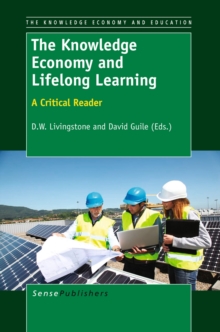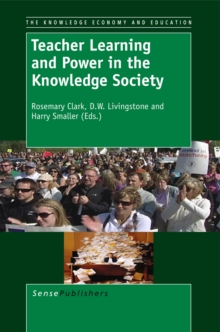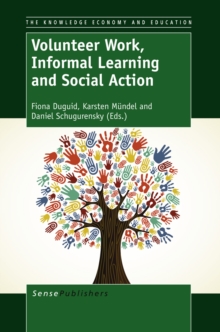
Learning across Contexts in the Knowledge Society PDF
Edited by Ola Erstad, Kristiina Kumpulainen, Asa Makitalo, Kim Christian Schroder, Pille Pruulmann-Vengerfeldt, Thuridur Johannsdottir
Part of the The Knowledge Economy and Education series
Please note: eBooks can only be purchased with a UK issued credit card and all our eBooks (ePub and PDF) are DRM protected.
Description
Developments within the "knowledge society," especially those resulting from technological innovation, have intensified an interest in the relationship between different contexts and multiple sites of learning across what is often termed as formal, non-formal and informal learning environments. The aim of this book is to trace learning and experience across multiple sites and contexts as a means to generate new knowledge about the borders and edges of different practices and the boundary crossings these entail in the learning lives of young people in times of dynamic societal, environmental, economic, and technological change. The empirical research discussed in this book has grown out of a Nordic network of researchers. The research initiatives in the Nordic countries tend to avoid the more spectacular debates over the future of the educational institutions that tend to dominate and obscure discussions on education in the knowledge society, and which look to models of informal learning, whether in the "learning communities" of workplaces and families or in the new socio-technical spaces of the Internet, as a source of alternative educational strategies. Rather, Nordic researchers more modestly ask whether it is possible to envisage new models of teaching and learning which take seriously both the responsibility to social justice and social wellbeing, which, at least rhetorically, underpinned a commitment to mass education of the 20th century, as well as to the radical challenges to traditional educational models offered by the new socio-technical spaces and practices of the 21st century.
Information
-
Download - Immediately Available
- Format:PDF
- Publisher:SensePublishers
- Publication Date:10/02/2016
- Category:
- ISBN:9789463004145
Information
-
Download - Immediately Available
- Format:PDF
- Publisher:SensePublishers
- Publication Date:10/02/2016
- Category:
- ISBN:9789463004145










